Images
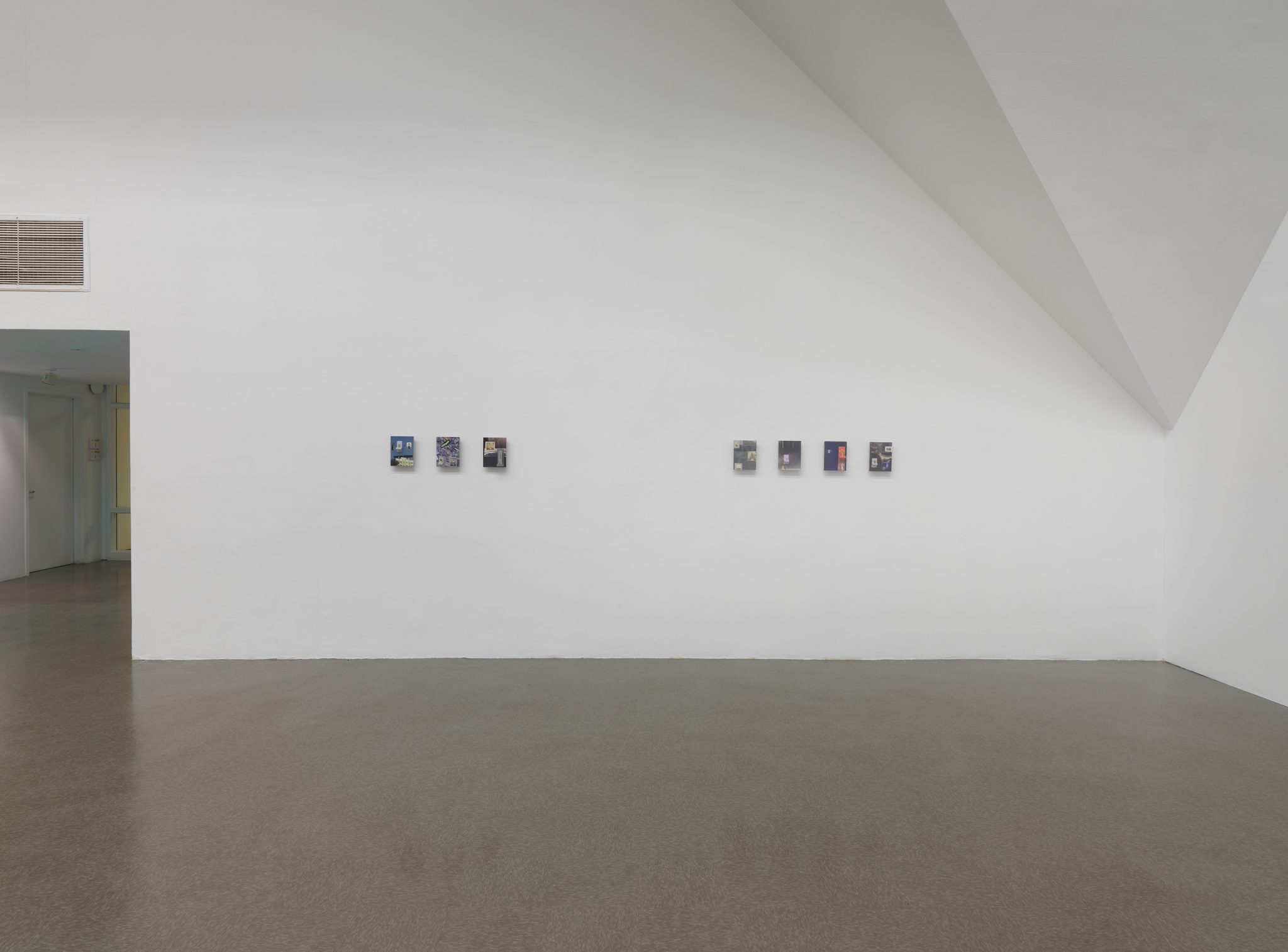
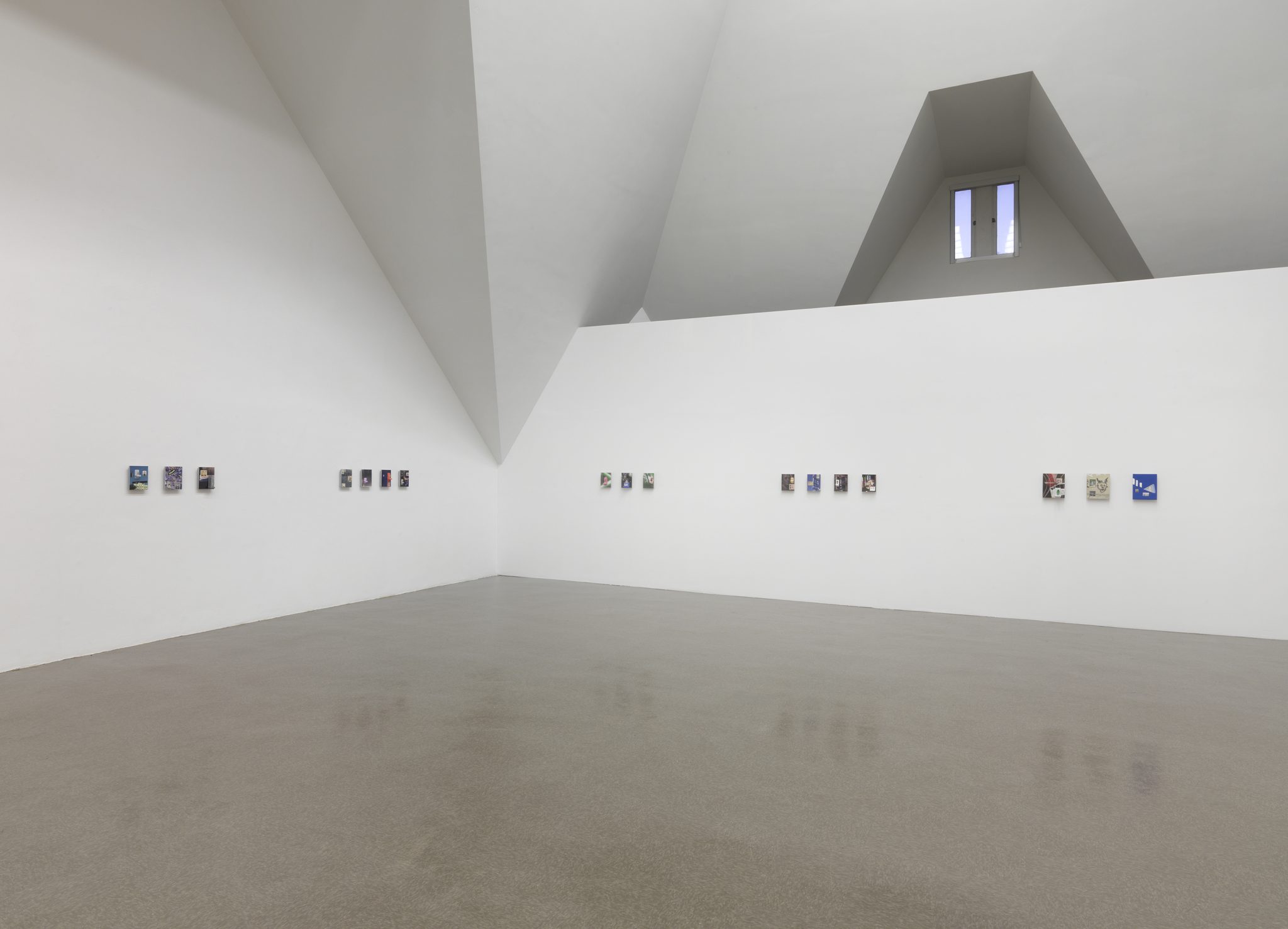
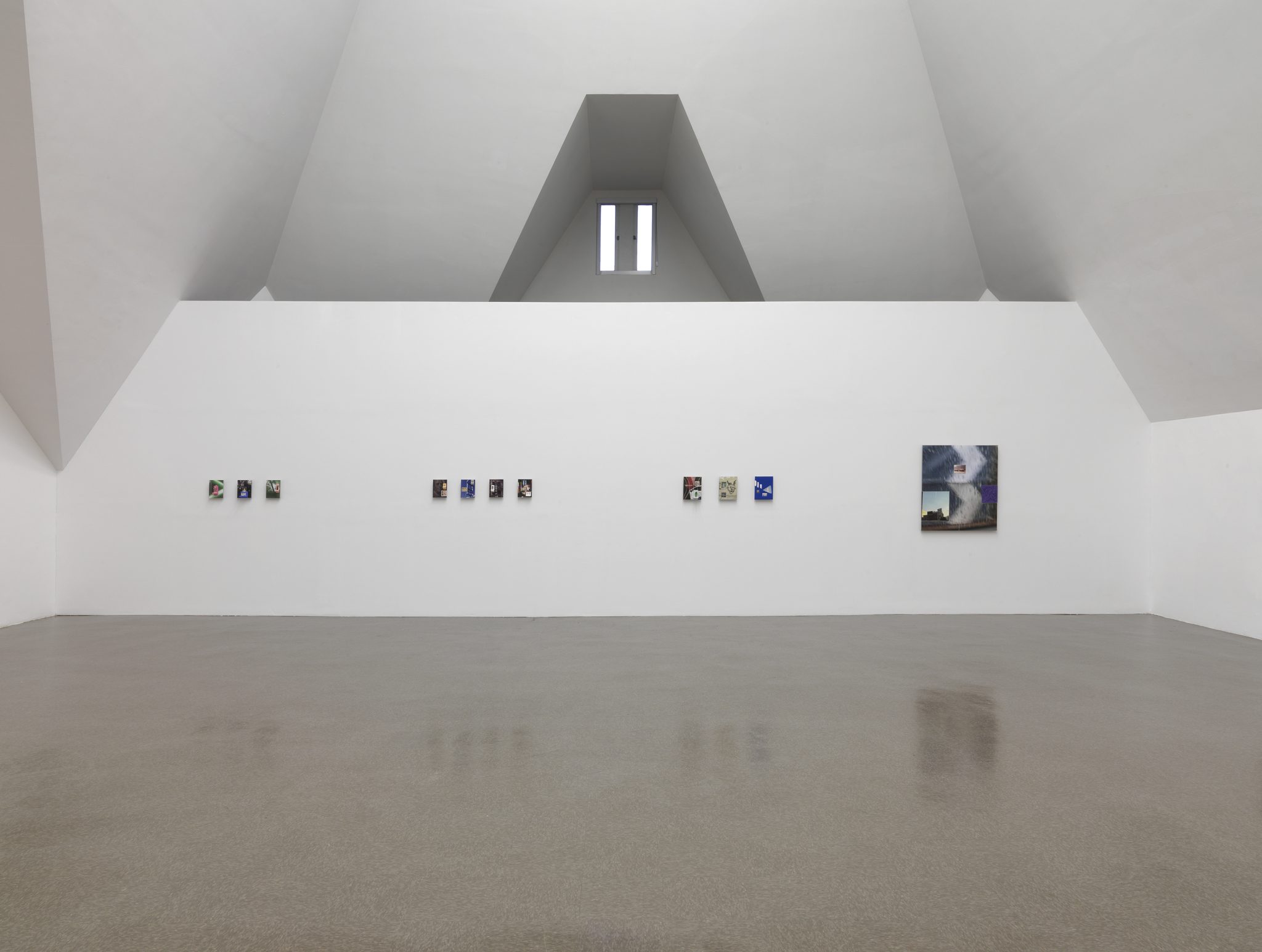
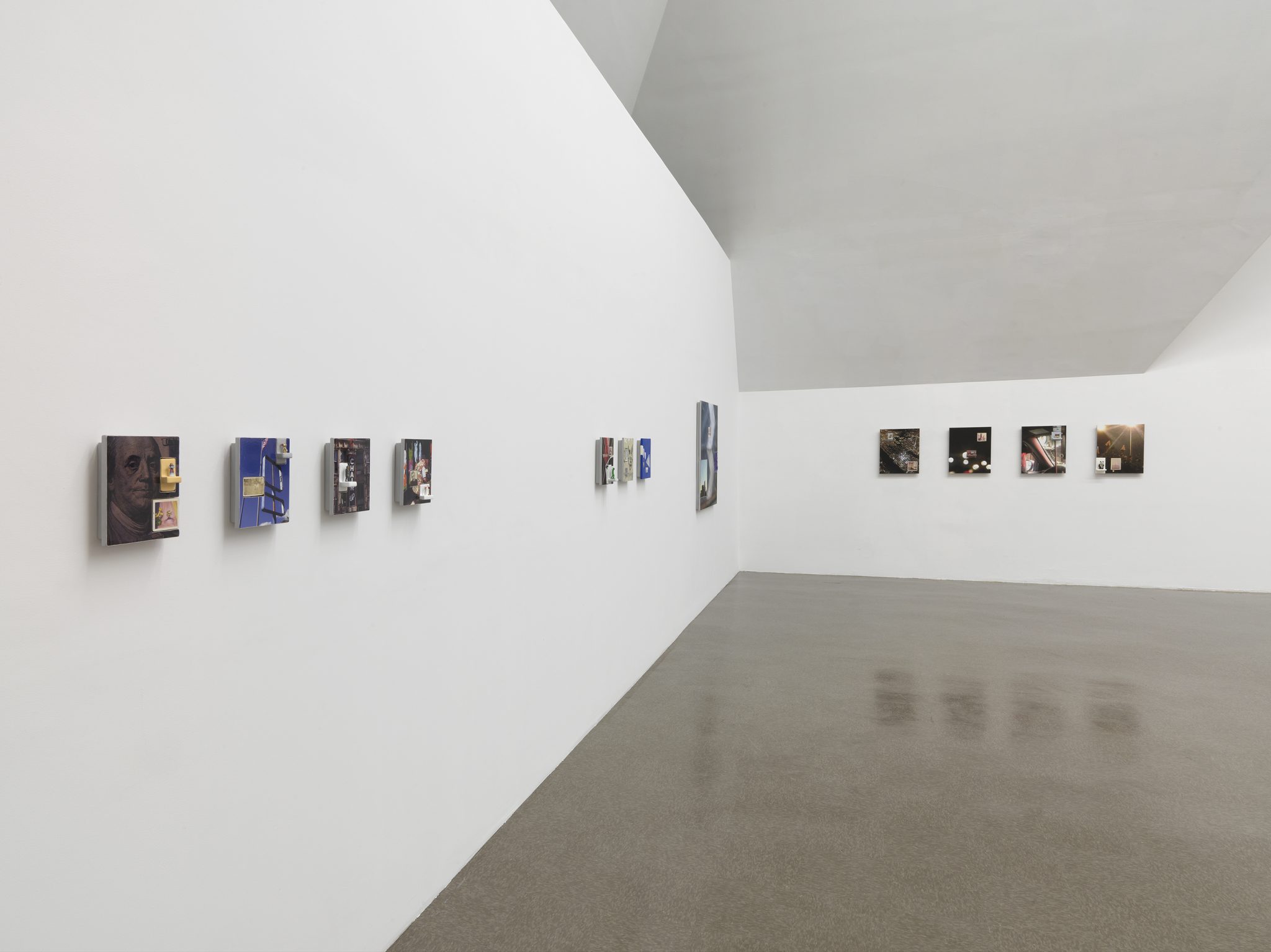
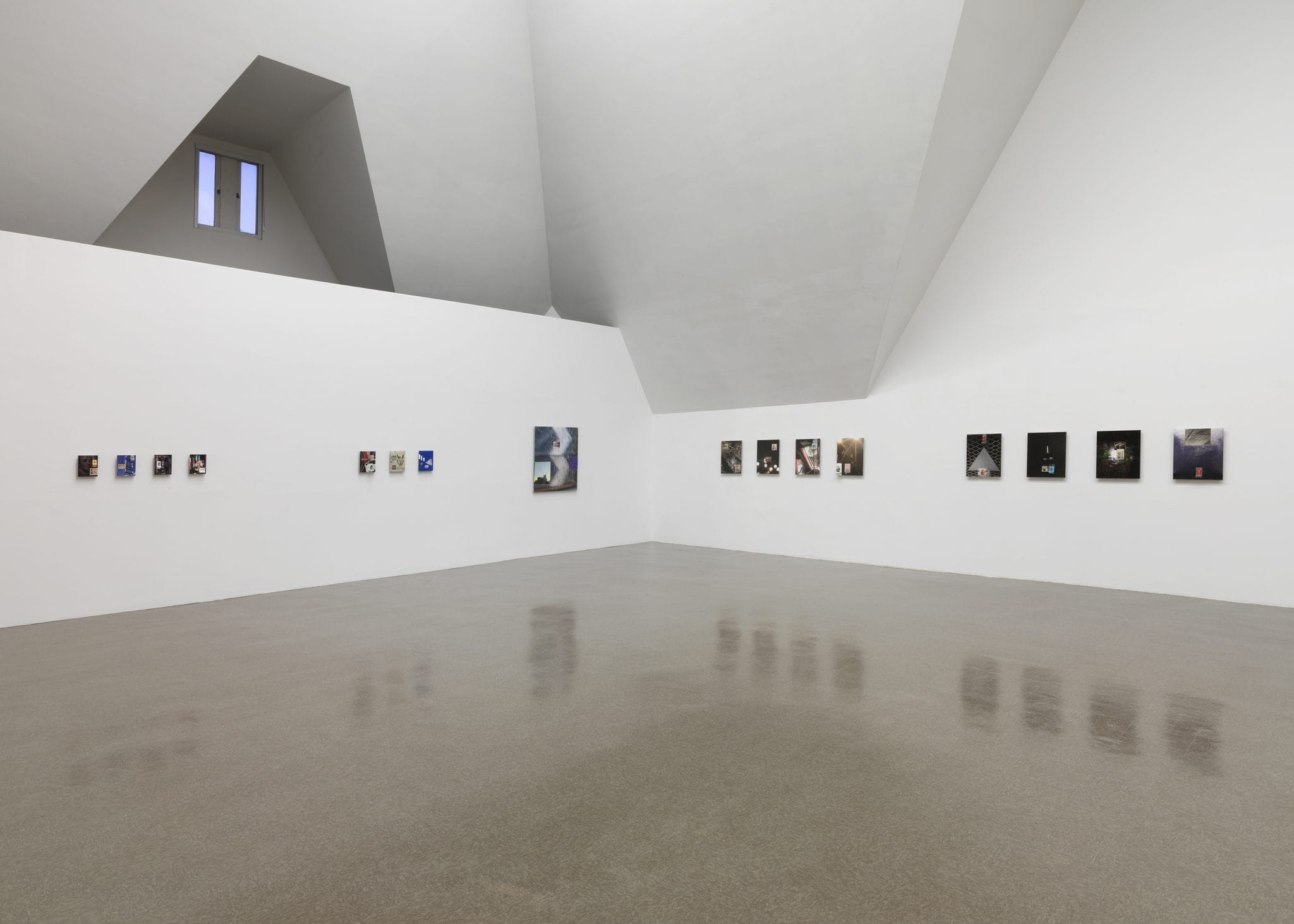




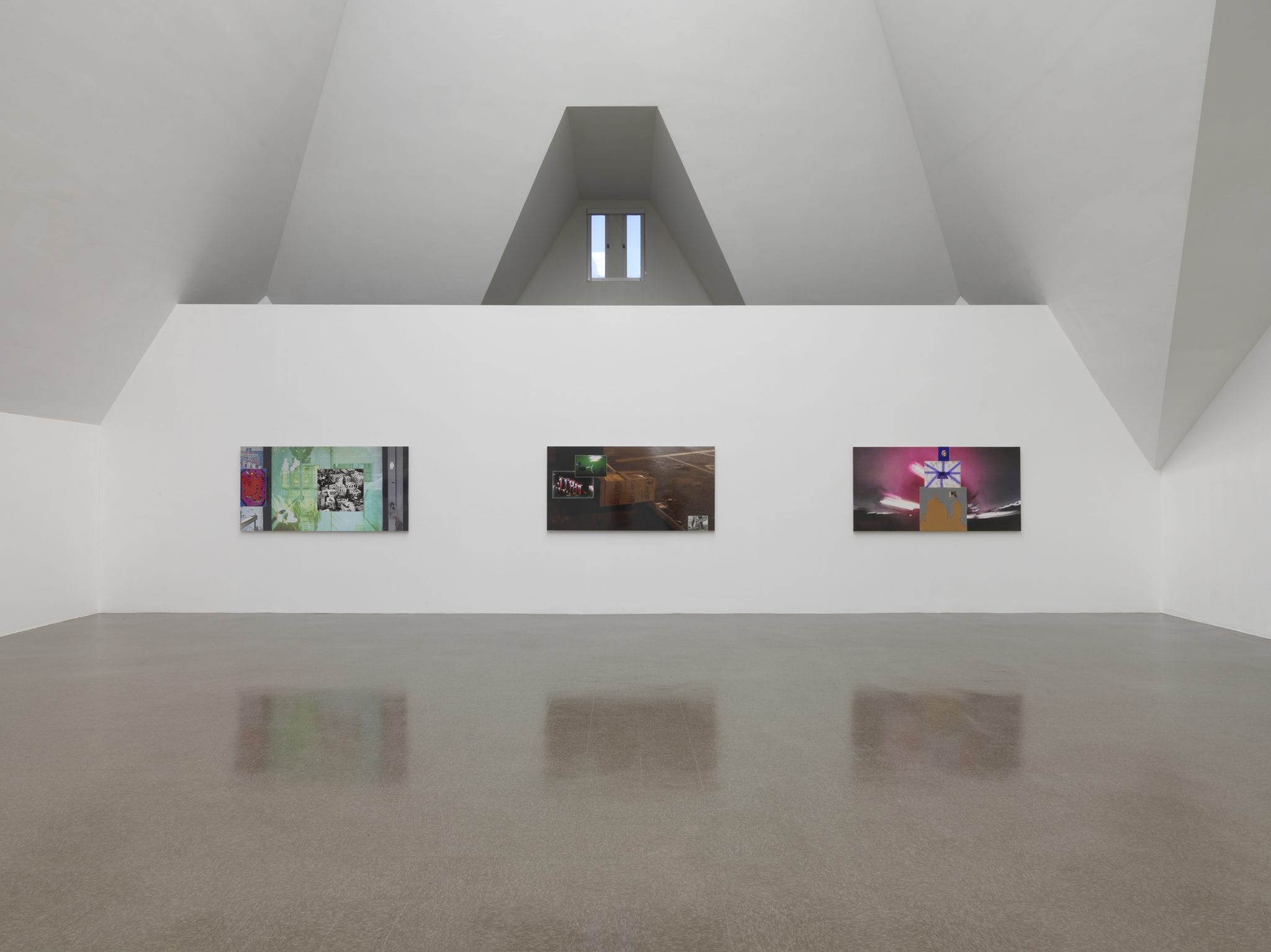
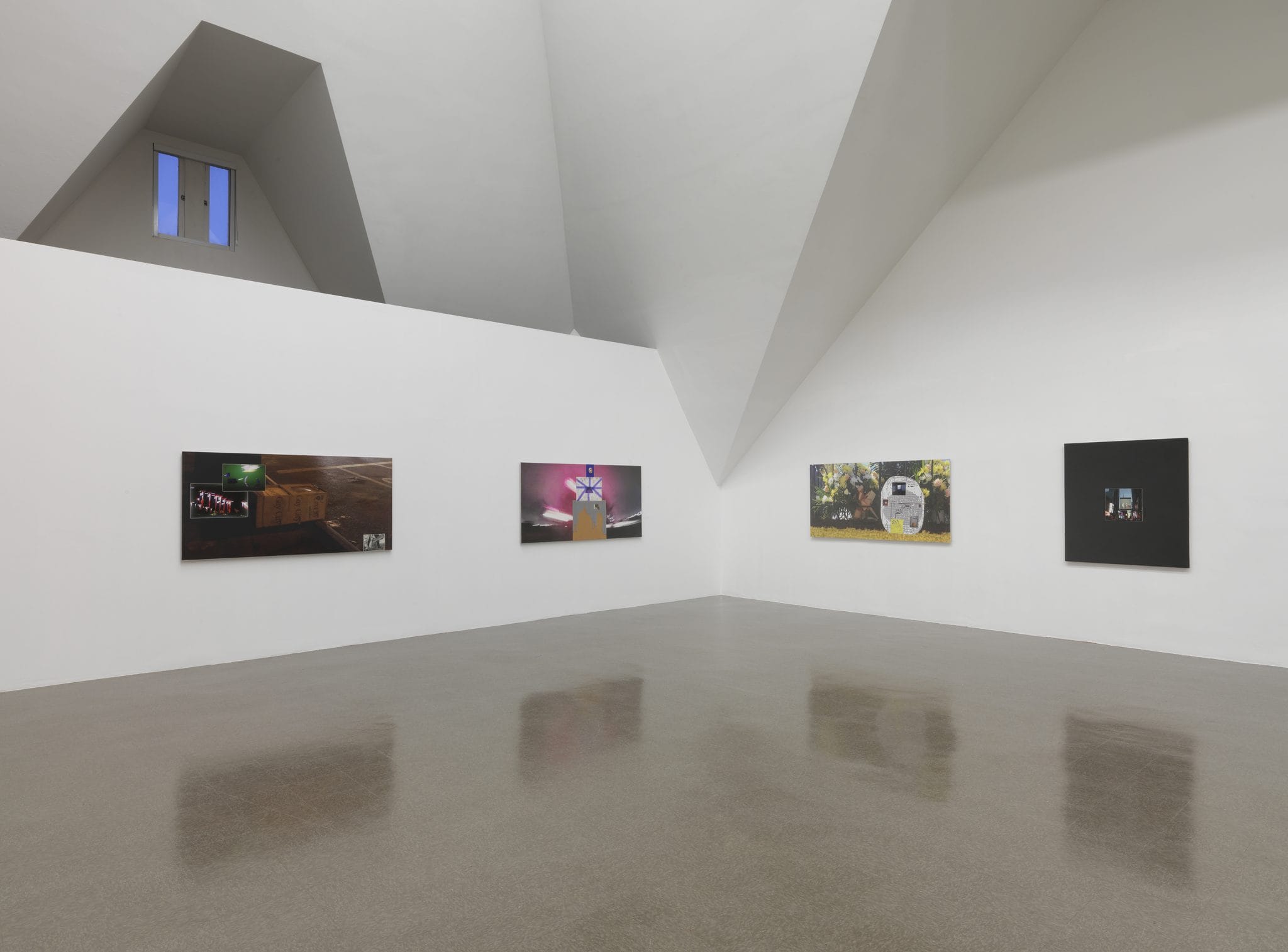
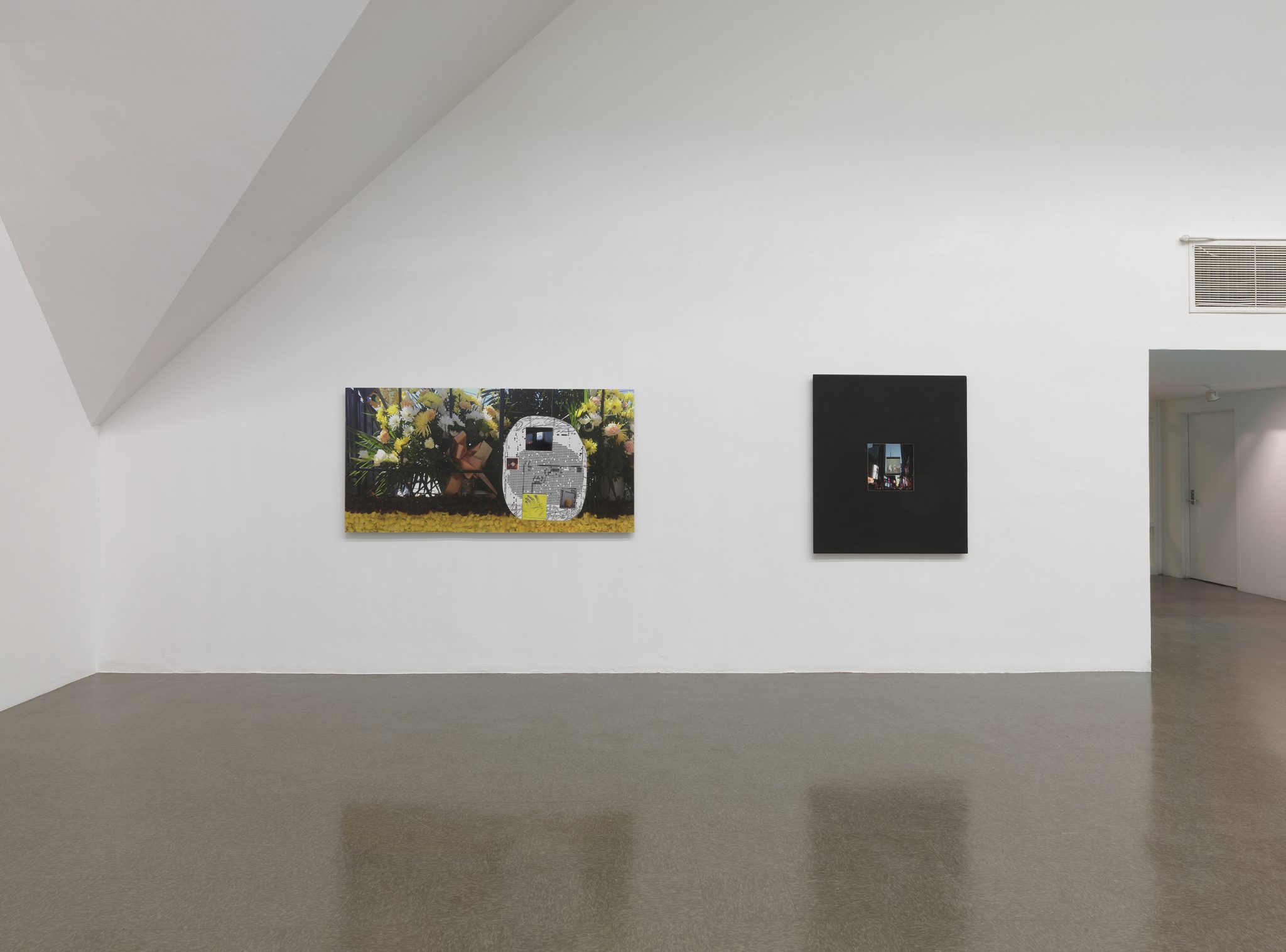
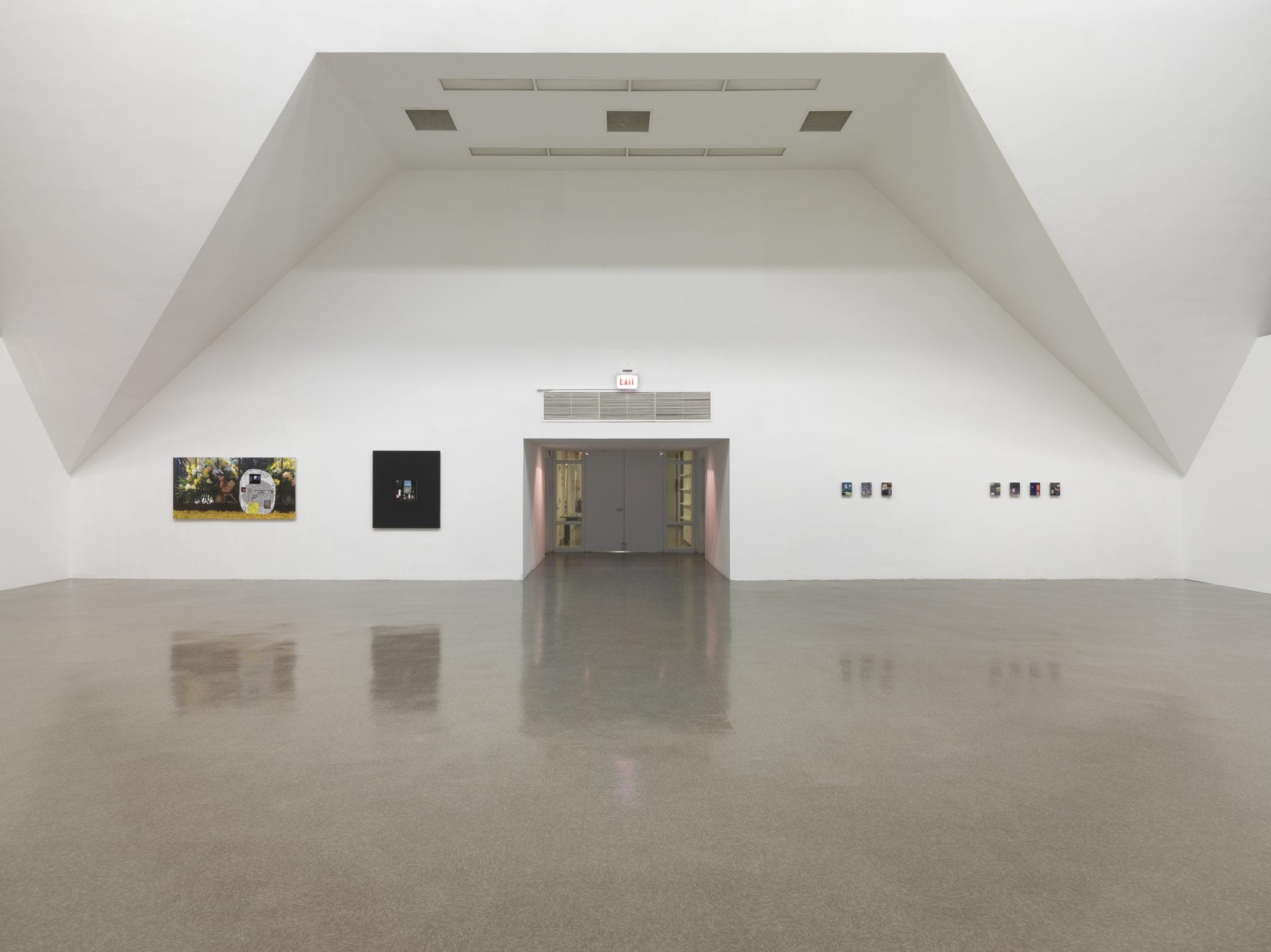

Sadie Benning
“Shared Eye (Sequence 1, Panels 1, 2, and 3),” 2016
Casein, acrylic, aqua resin, wood, digital images, photographs and found materials
8.25 x 6.38" [HxW] (20.96 x 16.21 cm) each
Courtesy of the artist and Vielmetter Los Angeles
Photocredit: Chris Austin
“Shared Eye (Sequence 1, Panels 1, 2, and 3),” 2016
Casein, acrylic, aqua resin, wood, digital images, photographs and found materials
8.25 x 6.38" [HxW] (20.96 x 16.21 cm) each
Courtesy of the artist and Vielmetter Los Angeles
Photocredit: Chris Austin
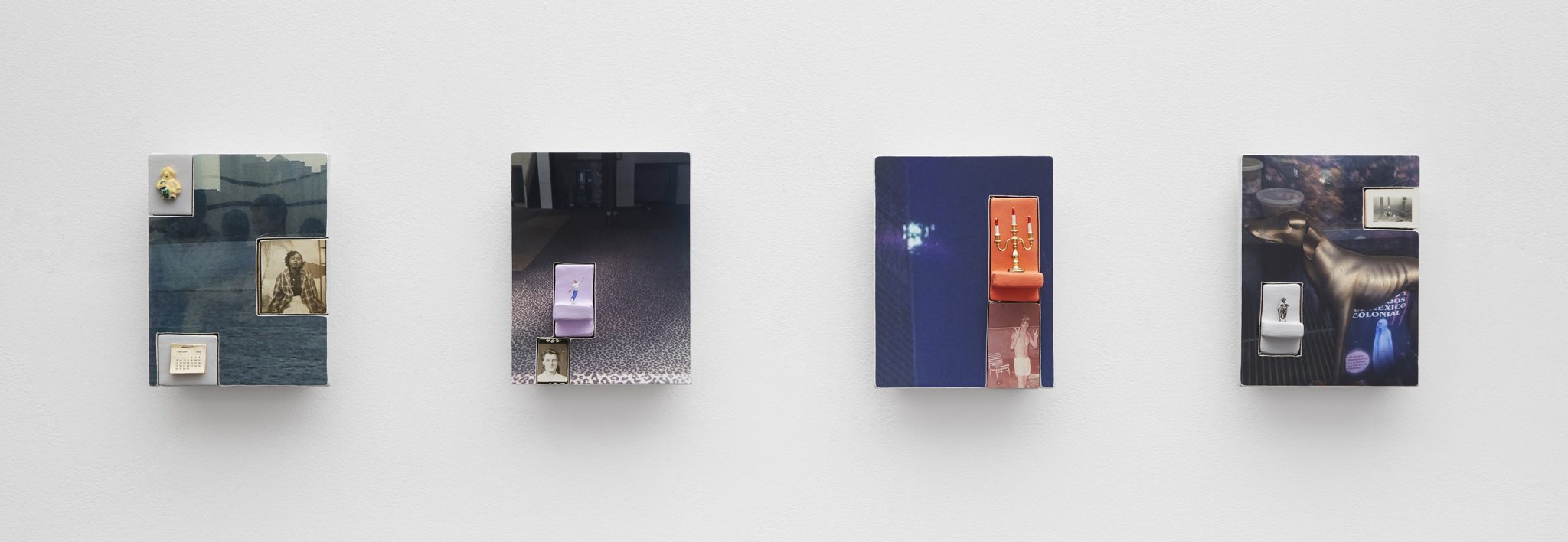
Sadie Benning
“Shared Eye (Sequence 2, Panels 4, 5, 6, and 7),” 2016
Casein, acrylic, aqua resin, wood, digital images, photographs and found materials
8.25 x 6.38" [HxW] (20.96 x 16.21 cm) each
Courtesy of the artist and Vielmetter Los Angeles
Photocredit: Chris Austin
“Shared Eye (Sequence 2, Panels 4, 5, 6, and 7),” 2016
Casein, acrylic, aqua resin, wood, digital images, photographs and found materials
8.25 x 6.38" [HxW] (20.96 x 16.21 cm) each
Courtesy of the artist and Vielmetter Los Angeles
Photocredit: Chris Austin
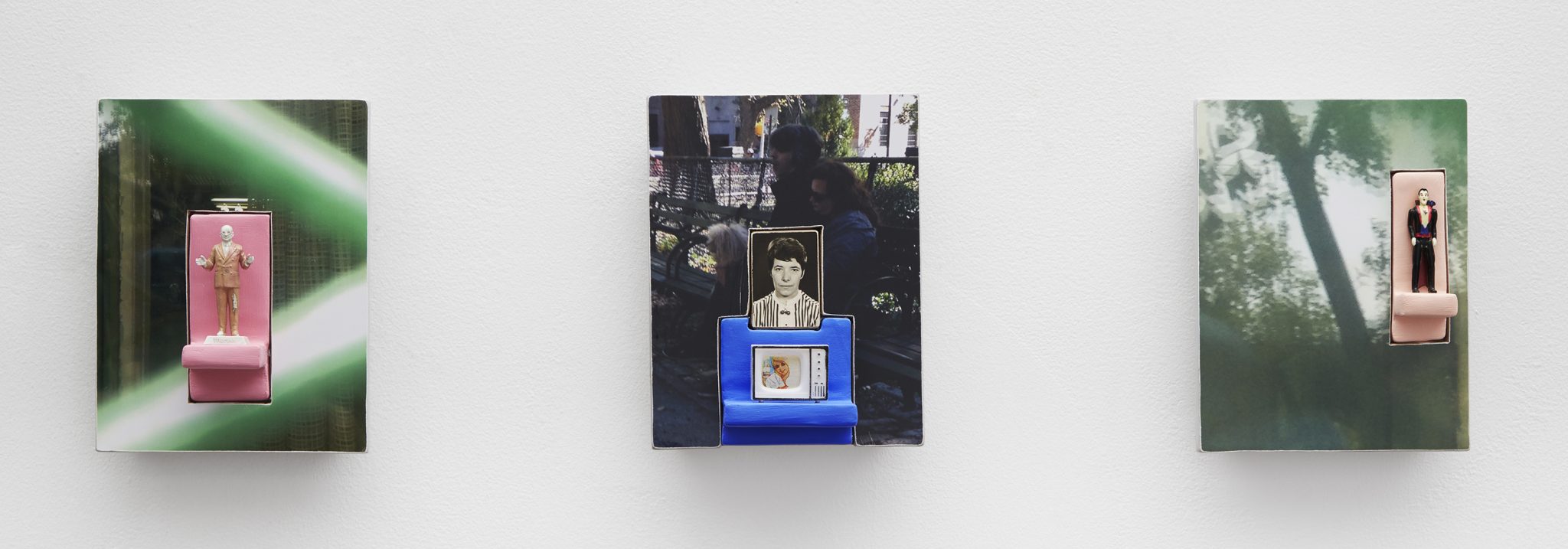
Sadie Benning
“Shared Eye (Sequence 3, Panels 8, 9, and 10),” 2016
Casein, acrylic, aqua resin, wood, digital images, photographs and found materials
8.25 x 6.38" [HxW] (20.96 x 16.21 cm) each
Courtesy of the artist and Vielmetter Los Angeles
Photocredit: Chris Austin
“Shared Eye (Sequence 3, Panels 8, 9, and 10),” 2016
Casein, acrylic, aqua resin, wood, digital images, photographs and found materials
8.25 x 6.38" [HxW] (20.96 x 16.21 cm) each
Courtesy of the artist and Vielmetter Los Angeles
Photocredit: Chris Austin

“Shared Eye (Sequence 4, Panels 11, 12, 13, and 14),” 2016
“Shared Eye (Sequence 4, Panels 11, 12, 13, and 14),” 2016
Casein, acrylic, aqua resin, wood, digital images, photographs and found materials
8.25 x 6.38" [HxW] (20.96 x 16.21 cm) each
Courtesy of the artist and Vielmetter Los Angeles
Photocredit: Chris Austin

Sadie Benning
“Shared Eye (Sequence 5, Panels 15, 16, and 17),” 2016
Casein, acrylic, aqua resin, wood, digital images, photographs and found materials
10.5 x 8.25" [HxW] (26.67 x 20.96 cm) each
Courtesy of the artist and Vielmetter Los Angeles
Photocredit: Chris Austin
“Shared Eye (Sequence 5, Panels 15, 16, and 17),” 2016
Casein, acrylic, aqua resin, wood, digital images, photographs and found materials
10.5 x 8.25" [HxW] (26.67 x 20.96 cm) each
Courtesy of the artist and Vielmetter Los Angeles
Photocredit: Chris Austin
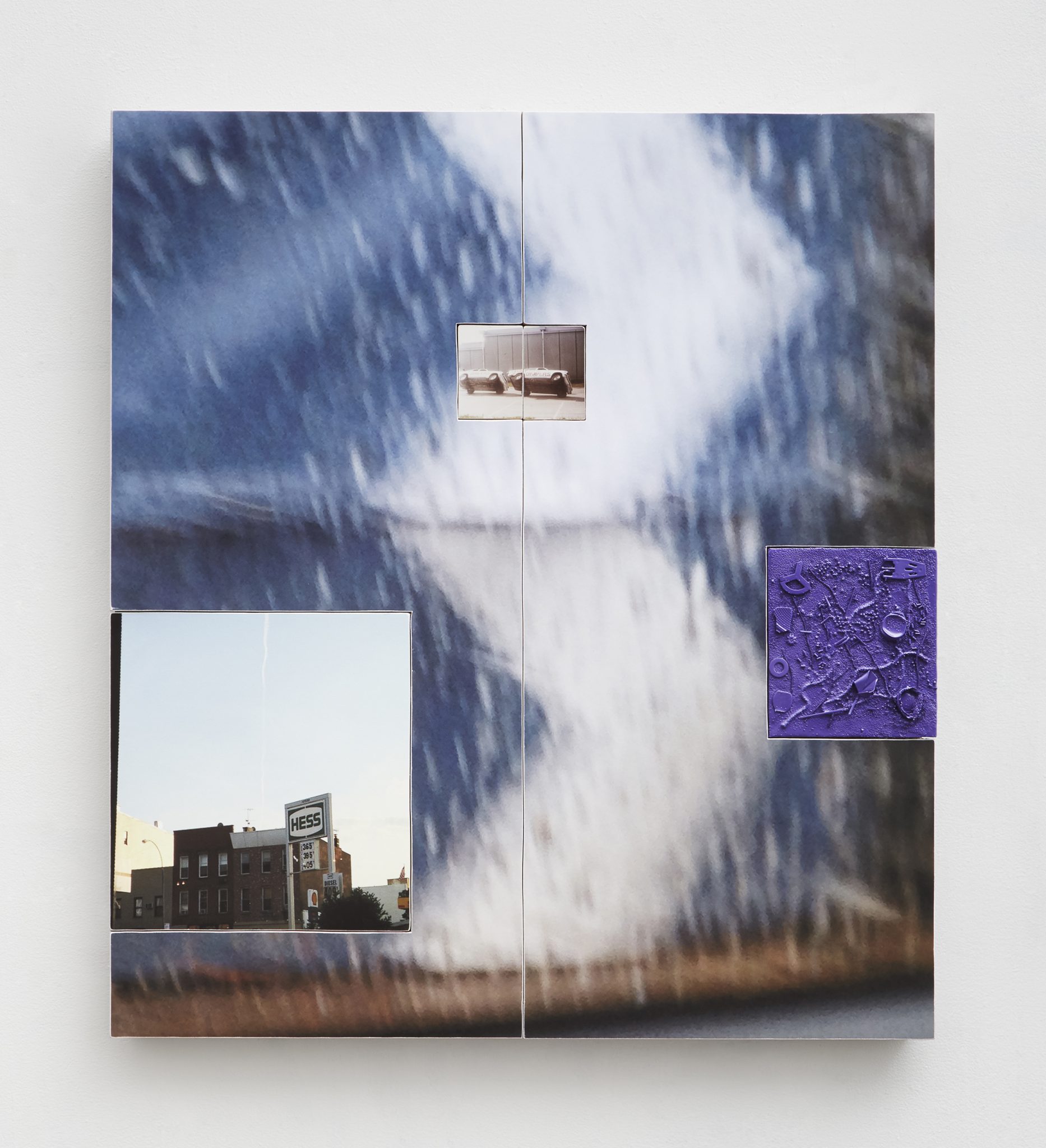
Sadie Benning
“Shared Eye (Sequence 6, Panels 18 and 19),” 2016
Casein, acrylic, aqua resin, wood, digital images, photographs and found materials
2 panels; 39.25 x 17.38 inches each, 39.25 x 34.76 inches overall
Courtesy of the artist and Vielmetter Los Angeles
Photocredit: Chris Austin
“Shared Eye (Sequence 6, Panels 18 and 19),” 2016
Casein, acrylic, aqua resin, wood, digital images, photographs and found materials
2 panels; 39.25 x 17.38 inches each, 39.25 x 34.76 inches overall
Courtesy of the artist and Vielmetter Los Angeles
Photocredit: Chris Austin
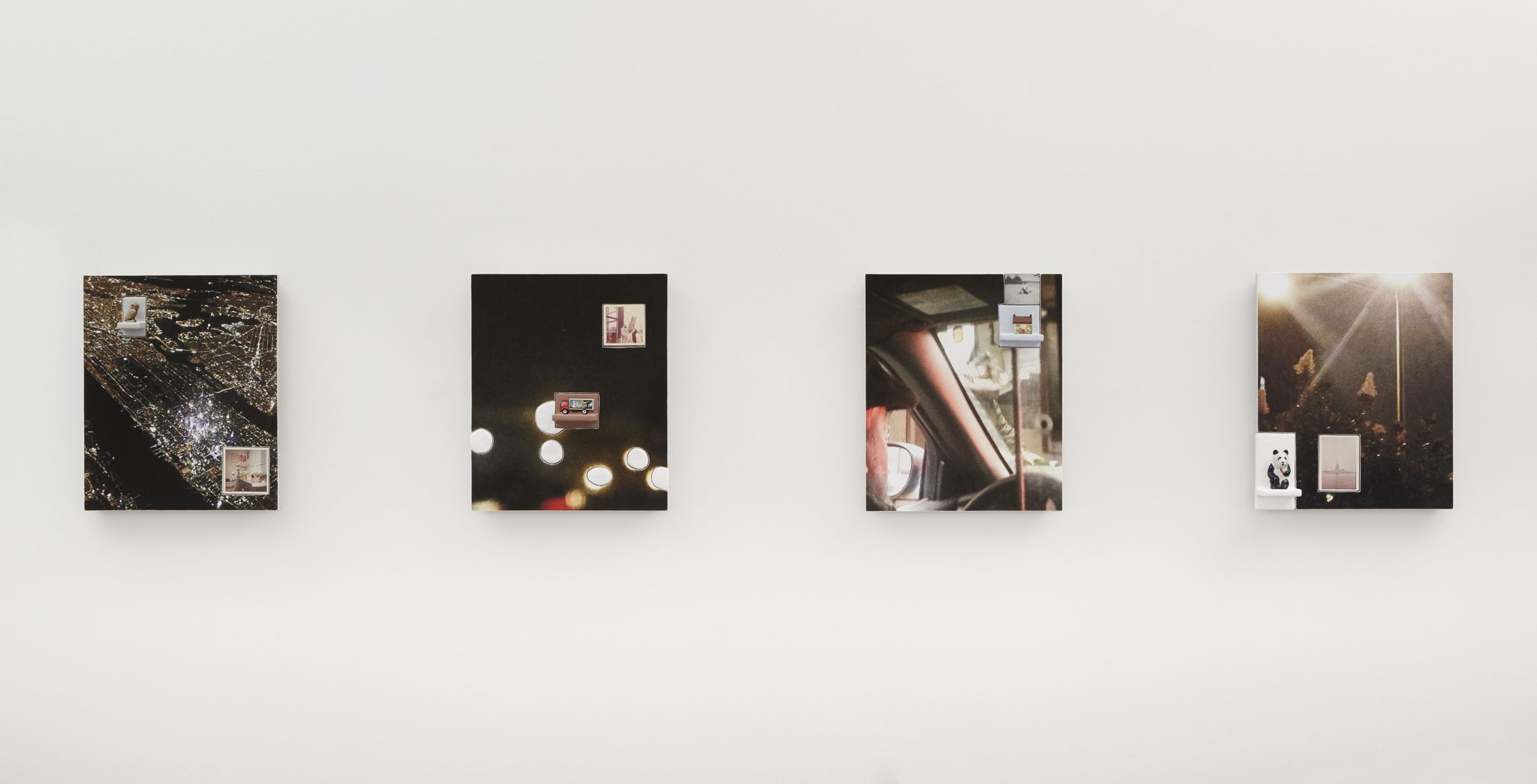
Sadie Benning
“Shared Eye (Sequence 7, Panels 20, 21, 22, and 23),” 2016
Casein, acrylic, aqua resin, wood, digital images, photographs and found materials
20.5 x 17" [HxW] (52.07 x 43.18 cm) each
Courtesy of the artist and Vielmetter Los Angeles
Photocredit: Chris Austin
“Shared Eye (Sequence 7, Panels 20, 21, 22, and 23),” 2016
Casein, acrylic, aqua resin, wood, digital images, photographs and found materials
20.5 x 17" [HxW] (52.07 x 43.18 cm) each
Courtesy of the artist and Vielmetter Los Angeles
Photocredit: Chris Austin
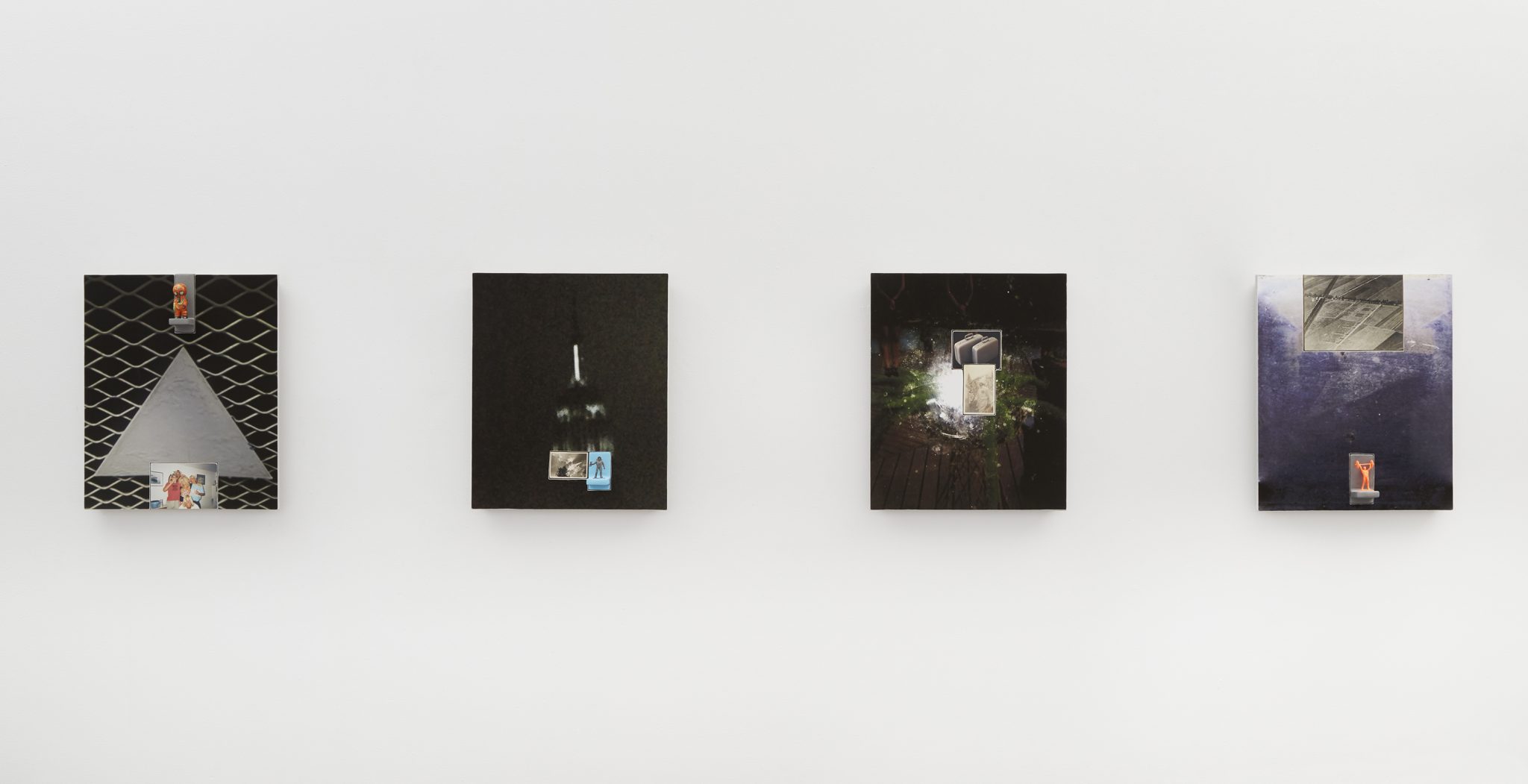
Sadie Benning
“Shared Eye (Sequence 8, Panels 24, 25, 26, and 27),” 2016
Casein, acrylic, aqua resin, wood, digital images, photographs and found materials
20.5 x 17" [HxW] (52.07 x 43.18 cm) each
Courtesy of the artist and Vielmetter Los Angeles
Photocredit: Chris Austin
“Shared Eye (Sequence 8, Panels 24, 25, 26, and 27),” 2016
Casein, acrylic, aqua resin, wood, digital images, photographs and found materials
20.5 x 17" [HxW] (52.07 x 43.18 cm) each
Courtesy of the artist and Vielmetter Los Angeles
Photocredit: Chris Austin

Sadie Benning
“Shared Eye (Sequence 9, Panels 28, 29, 30, and 31),” 2016
Casein, acrylic, aqua resin, wood, digital images, photographs and found materials
20.5 x 17" [HxW] (52.07 x 43.18 cm) each
Courtesy of the artist and Vielmetter Los Angeles
Photocredit: Chris Austin
“Shared Eye (Sequence 9, Panels 28, 29, 30, and 31),” 2016
Casein, acrylic, aqua resin, wood, digital images, photographs and found materials
20.5 x 17" [HxW] (52.07 x 43.18 cm) each
Courtesy of the artist and Vielmetter Los Angeles
Photocredit: Chris Austin
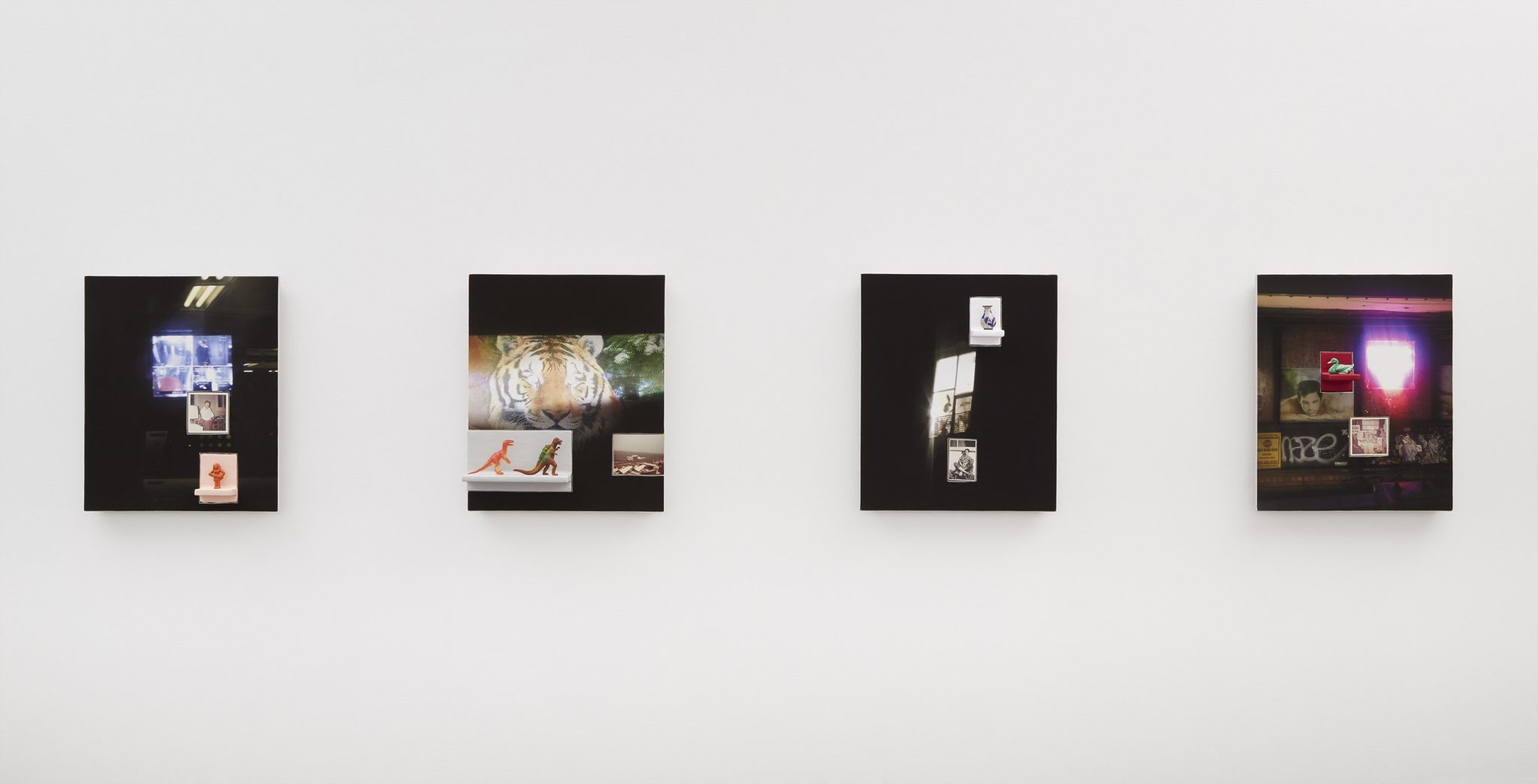
Sadie Benning
“Shared Eye (Sequence 10, Panels, 32, 33, 34, and 35),” 2016
Casein, acrylic, aqua resin, wood, digital images, photographs and found materials
20.5 x 17" [HxW] (52.07 x 43.18 cm) each
Courtesy of the artist and Vielmetter Los Angeles
Photocredit: Chris Austin
“Shared Eye (Sequence 10, Panels, 32, 33, 34, and 35),” 2016
Casein, acrylic, aqua resin, wood, digital images, photographs and found materials
20.5 x 17" [HxW] (52.07 x 43.18 cm) each
Courtesy of the artist and Vielmetter Los Angeles
Photocredit: Chris Austin

Sadie Benning
“Shared Eye (Sequence 11, Panel 36),” 2016
Casein, acrylic, aqua resin, wood, digital images, photographs and found materials
39.38 x 78.75" [HxW] (100.03 x 2.03 cm)
Courtesy of the artist and Vielmetter Los Angeles
Photocredit: Chris Austin
“Shared Eye (Sequence 11, Panel 36),” 2016
Casein, acrylic, aqua resin, wood, digital images, photographs and found materials
39.38 x 78.75" [HxW] (100.03 x 2.03 cm)
Courtesy of the artist and Vielmetter Los Angeles
Photocredit: Chris Austin
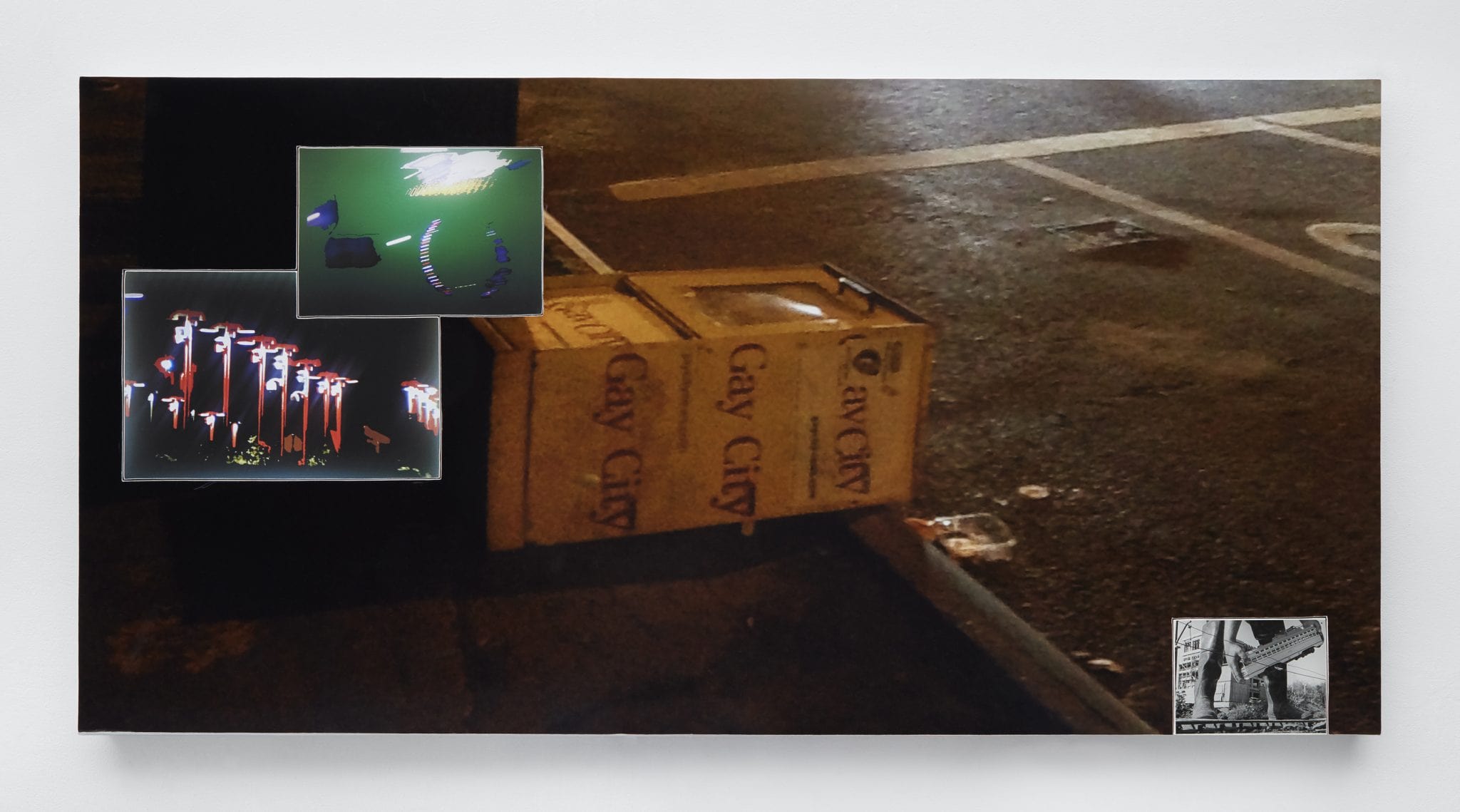
Sadie Benning
“Shared Eye (Sequence 12, Panel 37),” 2016
Casein, acrylic, aqua resin, wood, digital images, photographs and found materials
39.38 x 78.75" [HxW] (100.03 x 2.03 cm)
Courtesy of the artist and Vielmetter Los Angeles
Photocredit: Chris Austin
“Shared Eye (Sequence 12, Panel 37),” 2016
Casein, acrylic, aqua resin, wood, digital images, photographs and found materials
39.38 x 78.75" [HxW] (100.03 x 2.03 cm)
Courtesy of the artist and Vielmetter Los Angeles
Photocredit: Chris Austin

Sadie Benning
“Shared Eye (Sequence 13, Panel 38),” 2016
Casein, acrylic, aqua resin, wood, digital images, photographs and found materials
39.38 x 78.75" [HxW] (100.03 x 2.03 cm)
Courtesy of the artist and Vielmetter Los Angeles
Photocredit: Chris Austin
“Shared Eye (Sequence 13, Panel 38),” 2016
Casein, acrylic, aqua resin, wood, digital images, photographs and found materials
39.38 x 78.75" [HxW] (100.03 x 2.03 cm)
Courtesy of the artist and Vielmetter Los Angeles
Photocredit: Chris Austin
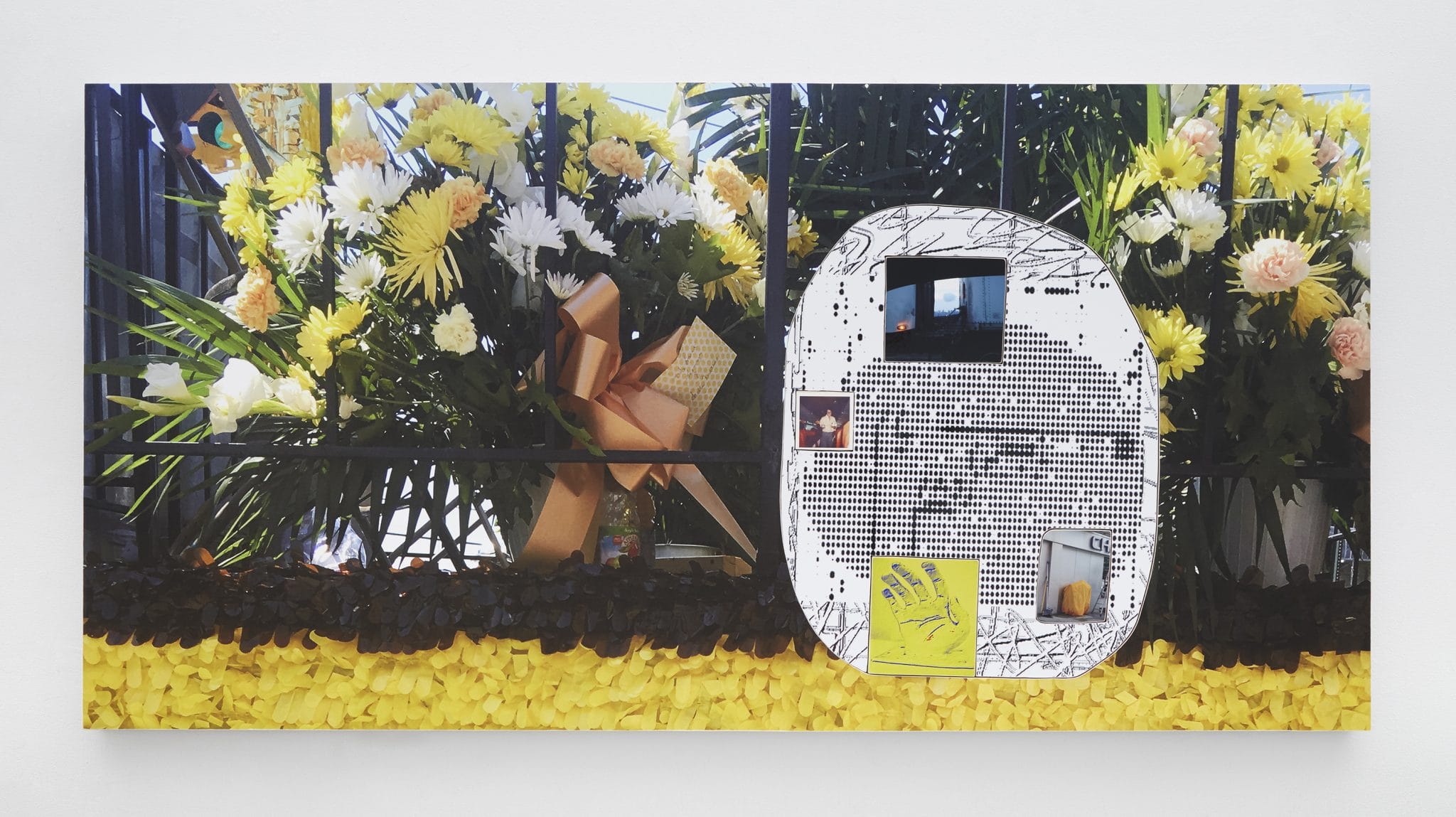
Sadie Benning
“Shared Eye (Sequence 14, Panel 39),” 2016
Casein, acrylic, aqua resin, wood, digital images, photographs and found materials
39.38 x 78.75" [HxW] (100.03 x 2.03 cm)
Courtesy of the artist and Vielmetter Los Angeles
Photocredit: Chris Austin
“Shared Eye (Sequence 14, Panel 39),” 2016
Casein, acrylic, aqua resin, wood, digital images, photographs and found materials
39.38 x 78.75" [HxW] (100.03 x 2.03 cm)
Courtesy of the artist and Vielmetter Los Angeles
Photocredit: Chris Austin

Sadie Benning
“Shared Eye (Sequence 15, Panel 40),” 2016
Casein, acrylic, aqua resin, wood, digital images, photographs and found materials
49.5 x 43.25" [HxW] (125.73 x 109.86 cm)
Courtesy of the artist and Vielmetter Los Angeles
Photocredit: Chris Austin
“Shared Eye (Sequence 15, Panel 40),” 2016
Casein, acrylic, aqua resin, wood, digital images, photographs and found materials
49.5 x 43.25" [HxW] (125.73 x 109.86 cm)
Courtesy of the artist and Vielmetter Los Angeles
Photocredit: Chris Austin
Press Release
The Renaissance Society presents Shared Eye, a new installation by artist Sadie Benning. In this series of mixed-media panels, images are layered and interpolated, suggesting the complexities of representation inherent in visual communications.
Shared Eye consists of 40 panels that have been cut up and re-assembled. Composed of mounted digital snapshots, found photographs, objects, and painted elements, the pieces hover between mediums, often starting as a drawing and evolving into a sculptural wall work. The frame ratio of each panel and the number of panels in each of 15 sequences has been determined by the mathematical parameters of Blinky Palermo’s 1976 work To the People of New York City: Palermo’s installation is composed of 40 seemingly non-representational paintings presented in a rhythmic pattern of scale, proximity, and number. In Shared Eye, the juxtaposition of images produces a fragmented but intensely felt friction, similar to what we experience in dreams, or while thinking, when the images stored in our minds unfold and forge new connections to produce narratives.
The title of Benning’s installation emphasizes an understanding of vision as a shared act and of perception as a construct built upon a spectrum of separate, converging, associative, and at times conflicting components. This “shared eye” has a certain utility, but it can also manifest as feelings of discomfort, anger, and acts of violence. Shared Eye highlights how internalized and automatic the pervasive surveillance-like affect of Capitalism and its attendant structures of patriarchy, misogyny, racism, and xenophobia can become. The artist illustrates, in both poetic and critical terms, this associative construction of meaning: for Benning, it is imperative to name and disrupt this system of organizing information, as it relates to this particular moment of deep political uncertainty.
In Shared Eye, the context for each image is produced not only within the composition of each panel and the installation as a whole, but within the architecture of the exhibition space, and the movement of the viewer’s body. The rhythm of the installation mimics the cuts, pans, pauses, and transitions of time-based media. Each of the panels, and the installation as a whole, suggests parts of a narrative, broken sentences—poems—where space is held for the viewer to make their own connections, seek their own questions, or leave things unresolved.
Curated by Solveig Øvstebø.
